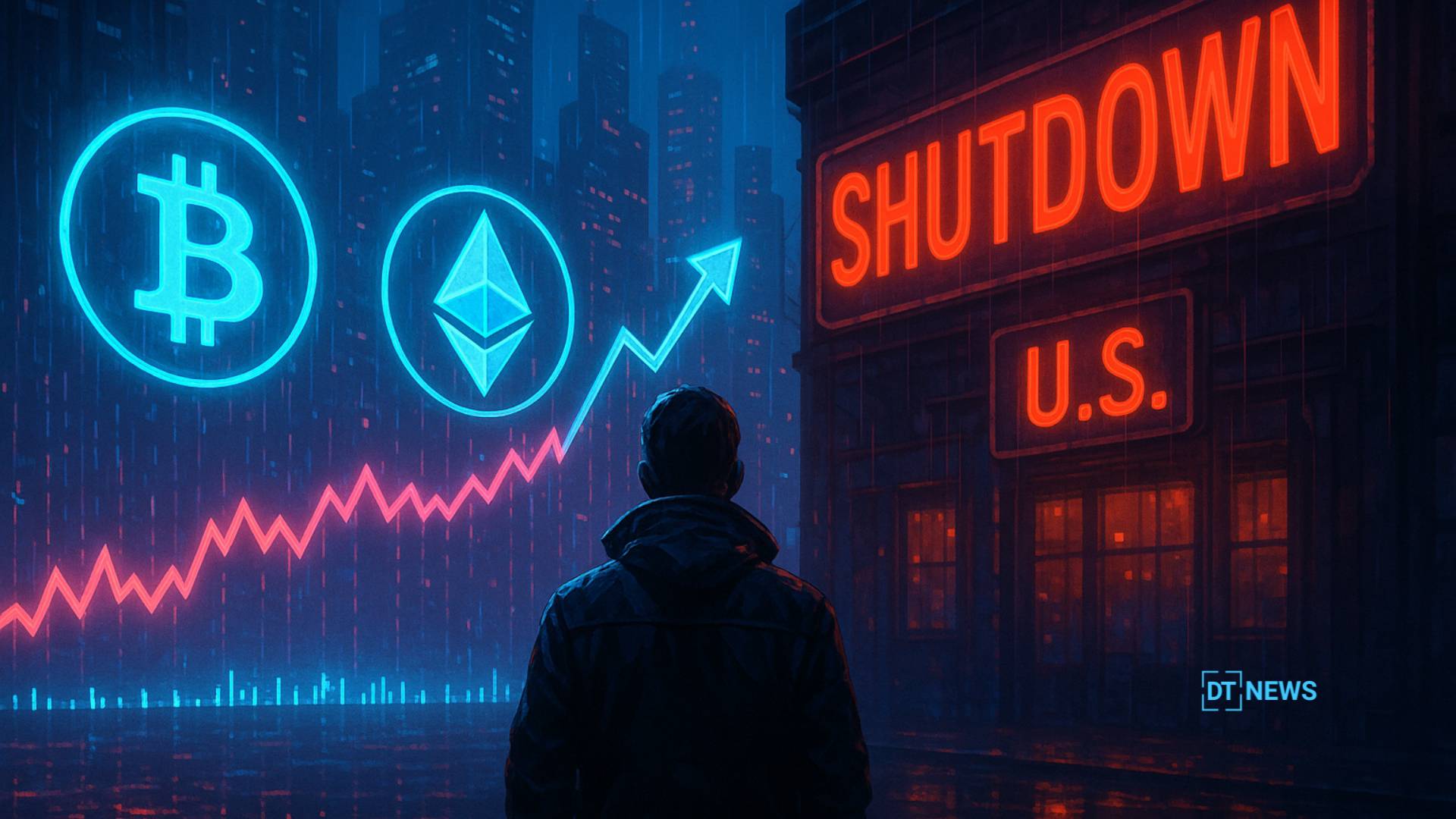The ongoing U.S. government shutdown has left nearly the entire cryptocurrency market holding its breath. With the Securities and Exchange Commission (SEC) running on limited staff, at least sixteen pending crypto exchange-traded funds (ETFs), including those tied to Solana, XRP, Litecoin, and Dogecoin, are stuck in bureaucratic limbo.
A Nation at a Standstill
The federal shutdown began when lawmakers failed to reach a funding deal, forcing most agencies to halt non-essential operations. The SEC, which plays a central role in approving ETF filings, is operating on minimal capacity. That means vital regulatory reviews have stopped.
In a normal October, the crypto industry might have celebrated what analysts call “ETF season.” But this year, deadlines are passing quietly, and no one is hitting the green button. The lack of movement isn’t about denial, it’s about delay.
The Growing Tension in Washington
Negotiations in Congress remain frozen. Republicans are demanding spending cuts to tackle the $37.8 trillion national debt, while Democrats push to preserve healthcare funding and extend tax credits for families. Until both sides reach a compromise, the shutdown continues with no clear end in sight.
For the ETF hopefuls, this gridlock means missed opportunities. A continuation of the shutdown into November could push several high-profile ETF decisions into next year.
Market Analysts Brace for a Post-Shutdown Surge
ETF expert Nate Geraci summed up the sentiment on X, saying, “Once the government shutdown ends, spot crypto ETF floodgates open.” He later added, “It’s ironic that fiscal dysfunction and political theater are delaying the very innovation crypto aims to fix.”
Geraci’s remarks echo what many in the market believe: once the SEC is back to full strength, there could be a rush of ETF approvals. Institutional investors, waiting on the sidelines, may pour capital into digital asset markets almost overnight.
Bitfinex analysts previously noted that the next “altcoin season” might be sparked by ETF approvals, arguing that these funds offer safer, regulated exposure to volatile assets like XRP or Solana. If those approvals land, broader investor participation could follow, bridging traditional finance with decentralized assets.
A Delicate Balancing Act for the SEC
The SEC now faces the challenge of managing a mounting backlog of applications. Even before the shutdown, over twenty new ETF filings were submitted in the first week of October alone. Once operations resume, analysts expect a bottleneck-clearing spree that could reshape crypto’s short-term trajectory.
However, caution remains warranted. The memory of past ETF rejections still lingers, and regulatory hesitation could return if political tensions remain unresolved. Still, market optimism persists, especially as global adoption strengthens and institutional interest grows.
The Larger Implications for Crypto
The prolonged halt underscores crypto’s growing dependency on regulatory systems it once sought to disrupt. Ironically, the same bureaucracy that crypto aimed to replace now determines its next leap toward legitimacy.
For investors, patience has become a strategy. As traditional markets wrestle with uncertainty, digital assets continue to evolve as a parallel system, faster, borderless, and increasingly resilient.
Whether the shutdown lasts another week or month, one thing is certain: once it lifts, the crypto ETF pipeline could redefine how mainstream finance engages with blockchain technology.
Conclusion
The U.S. government shutdown is more than a political impasse, it’s a freeze on one of the most pivotal regulatory chapters in crypto’s evolution. From XRP to Solana, digital assets are waiting for Washington to turn the lights back on.
When it does, the flood of ETF approvals could mark the beginning of a new financial era where crypto and traditional markets converge more tightly than ever before.
Frequently Asked Questions
1. Why does the government shutdown affect crypto ETFs?
Because the SEC operates with limited staff during shutdowns, it cannot review or approve ETF filings until full funding resumes.
2. Which crypto ETFs are awaiting approval?
Applications include funds tracking Solana, XRP, Litecoin, Dogecoin, and several multi-asset portfolios.
3. How will ETF approvals impact crypto prices?
Analysts expect a surge in institutional inflows and higher liquidity, which could lift prices once approvals begin.
4. What happens after the shutdown ends?
The SEC will resume operations, likely expediting the backlog of pending ETF applications.
Glossary of Key Terms
Exchange-Traded Fund (ETF): A financial product that tracks the performance of an asset or index and trades like a stock on major exchanges.
Securities and Exchange Commission (SEC): The U.S. government agency responsible for overseeing securities markets and approving ETF filings.
Altcoin Season: A market phase where alternative cryptocurrencies outperform Bitcoin, often due to new developments or investor diversification.
Institutional Inflows: Large-scale investments from banks, hedge funds, or asset managers entering a market.
Market Backlog: The accumulation of pending financial or regulatory filings awaiting review due to administrative delays.



















































































































